- Home
- Ian Mcewan
Sweet Tooth Page 2
Sweet Tooth Read online
Page 2
?Quis? tolerated four rounds of my anti-communism. My interests extended to Koestler’s Darkness at Noon, Nabokov’s Bend Sinister and that fine treatise by Milosz, The Captive Mind. I was also the first person in the world to understand Orwell’s Nineteen Eighty-Four. But my heart was always with my first love, Aleksandr. The forehead that rose like an Orthodox dome, the hillbilly pastor’s wedge of beard, the grim, gulag-conferred authority, his stubborn immunity to politicians. Even his religious convictions could not deter me. I forgave him when he said that men had forgotten God. He was God. Who could match him? Who could deny him his Nobel Prize? Gazing at his photograph, I wanted to be his lover. I would have served him as my mother did my father. Box his socks? I would have knelt to wash his feet. With my tongue!
In those days, dwelling on the iniquities of the Soviet system was routine for Western politicians and editorials in most newspapers. In the context of student life and politics, it was just a little distasteful. If the CIA was against communism, there must be something to be said for it. Sections of the Labour Party still held a candle for the ageing, square-jawed Kremlin brutes and their grisly project, still sang the Internationale at the annual conference, still dispatched students on goodwill exchanges. In the Cold War years of binary thinking, it would not do to find yourself agreeing about the Soviet Union with an American President waging war in Vietnam. But at that teatime rendezvous in the Copper Kettle, Rona, even then so polished, perfumed, precise, said it was not the politics of my column that troubled her. My sin was to be earnest. The next issue of her magazine didn’t carry my byline. My space was taken up by an interview with the Incredible String Band. And then ?Quis? folded.
* * *
Within days of my sacking I started on a Colette phase, which consumed me for months. And I had other urgent concerns. Finals were only weeks away and I had a new boyfriend, a historian called Jeremy Mott. He was of a certain old-fashioned type – lanky, large-nosed, with an outsized Adam’s apple. He was unkempt, clever in an understated way, and extremely polite. I’d noticed quite a few of his sort around. They all seemed to be descended from a single family and come from public schools in the north of England, where they were issued with the same clothes. These were the last men on earth still wearing Harris tweed jackets with leather patches on the elbows and trim on the cuffs. I learned, though not from Jeremy, that he was expected to get a first and that he had already published an article in a scholarly journal of sixteenth-century studies.
He turned out to be a tender and considerate lover, despite his unfortunate, sharply angled pubic bone, which first time hurt like hell. He apologised for it, as one might for a mad but distant relative. By which I mean he was not particularly embarrassed. We settled the matter by making love with a folded towel between us, a remedy I sensed he had often used before. He was truly attentive and skilful, and could keep going for as long as I wanted, and beyond, until I could bear no more. But his own orgasms were elusive, despite my efforts, and I began to suspect that there was something he wanted me to be saying or doing. He wouldn’t tell me what it was. Or rather, he insisted that there was nothing to tell. I didn’t believe him. I wanted him to have a secret and shameful desire that only I could satisfy. I wanted to make this lofty, courteous man all mine. Did he want to smack my backside, or have me smack his? Was he wanting to try on my underwear? This mystery obsessed me when I was away from him, and made it all the harder to stop thinking about him when I was supposed to be concentrating on the maths. Colette was my escape.
One afternoon in early April, after a session with the folded towel in Jeremy’s rooms, we were crossing the road by the old Corn Exchange, I in a haze of contentment and some related pain from a pulled muscle in the small of my back, and he – well, I wasn’t sure. As we walked along I was wondering whether I should broach the subject once more. He was being pleasant, with his arm heavily around my shoulders as he told me about his essay on the Star Chamber. I was convinced that he wasn’t properly fulfilled. I thought I heard it in the tightness of his voice, his nervous pace. In days of lovemaking he had not been blessed with a single orgasm. I wanted to help him, and I was genuinely curious. I was also troubled by the thought that I might be failing him. I aroused him, that much was clear, but perhaps he didn’t quite desire me sufficiently. We went past the Corn Exchange in the twilight chill of a damp spring, my lover’s arm was about me like a fox fur, my happiness faintly compromised by a muscular twinge and only a little more by the enigma of Jeremy’s desires.
Suddenly, from out of an alley, there appeared before us under the inadequate street lighting Jeremy’s history tutor, Tony Canning. When we were introduced he shook my hand, and held on to it far too lingeringly, I thought. He was in his early fifties – about my father’s age – and I knew only what Jeremy had already told me. He was a professor, a one-time friend of the Home Secretary, Reggie Maudling, who had been to dine in his college. The two men had fallen out one drunken evening over the policy of internment without trial in Northern Ireland. Professor Canning had chaired a commission on historical sites, sat on various advisory boards, was a trustee of the British Museum and had written a highly regarded book about the Congress of Vienna.
He was of the great and good, a type vaguely familiar to me. Men like him came to our house to visit the Bishop from time to time. They were annoying of course to anyone under twenty-five in that post-sixties period, but I rather liked them too. They could be charming, even witty, and the whiff they trailed of cigars and brandy made the world seem orderly and rich. They thought much of themselves, but they didn’t seem dishonest, and they had, or gave the impression they had, a strong sense of public service. They took their pleasures seriously (wine, food, fishing, bridge, etc.) and apparently some had fought an interesting war. I had memories of childhood Christmases when one or two of them would tip my sister and me a ten bob note. Let these men rule the world. There were others far worse.
Canning had a relatively subdued grand manner, perhaps to match his modest public roles. I noted the wavy hair, finely parted, and moist fleshy lips and a small cleft in the centre of his chin, which I thought was endearing because I could see, even in poor light, that he had some trouble shaving it clean. Ungovernable dark hairs protruded from the vertical trough of skin. He was a good-looking man.
When the introductions were over, Canning asked me some questions about myself. They were polite and innocent enough – about my degree, Newnham, the principal, who was a good friend of his, my home town, the cathedral. Jeremy cut in with some small talk and then Canning interrupted in turn to thank him for showing him my last three articles for ?Quis?.
He turned to me again. ‘Bloody good pieces. You’ve quite a talent, my dear. Are you going into journalism?’
?Quis? was a student rag, not intended for serious eyes. I was gratified by the praise, but too young to know how to take a compliment. I mumbled something modest but it sounded dismissive, then I clumsily tried to correct myself and became flustered. The professor took pity on me and invited us to tea and we accepted, or Jeremy did. And so we followed Canning back across the market towards his college.
His rooms were smaller, dingier, more chaotic than I expected, and I was surprised to see him making a mess of the tea, partly rinsing the chunky brown-stained mugs and slopping hot water from a filthy electric kettle over papers and books. None of this fitted with what I came to know of him later. He sat behind his desk, we sat on armchairs and he continued to ask questions. It could have been a tutorial. Now that I was nibbling his Fortnum & Mason chocolate biscuits, I felt obliged to answer him more fully. Jeremy was encouraging me, nodding stupidly at everything I said. The professor asked about my parents, and what it was like growing up ‘in the shadow of a cathedral’ – I said, wittily, I thought, that there was no shadow because the cathedral was to the north of our house. Both men laughed and I wondered if my joke had implied more than I understood. We moved on to nuclear weapons and calls in the Labour Party for
unilateral disarmament. I repeated a phrase I’d read somewhere – a cliché I realised later. It would be impossible ‘to put the genie back in the bottle’. Nuclear weapons would have to be managed, not banned. So much for youthful idealism. Actually, I had no particular views on the subject. In another context, I could have spoken up for nuclear disarmament. I would have denied it, but I was trying to please, to give the right answers, to be interesting. I liked the way Tony Canning leaned forwards when I spoke, I was encouraged by his little smile of approbation, which stretched but did not quite part his plump lips, and his way of saying ‘I see’ or ‘Quite …’ whenever I paused.
Perhaps it should have been obvious to me where this was leading. In a tiny, hothouse world of undergraduate journalism, I’d announced myself as a trainee Cold Warrior. It must be obvious now. This was Cambridge, after all. Why else would I recount the meeting? At the time the encounter had no significance for me at all. We had been on our way to a bookshop and instead we were taking tea with Jeremy’s tutor. Nothing very strange in that. Recruitment methods in those days were changing, but only a little. The Western world may have been undergoing a steady transformation, the young may have thought they had discovered a new way of talking to each other, the old barriers were said to be crumbling from the base. But the famous ‘hand on the shoulder’ was still applied, perhaps less frequently, perhaps with less pressure. In the university context certain dons continued to look out for promising material and pass names on for interview. Certain successful candidates in the Civil Service exams were still taken aside and asked if they had ever thought of ‘another’ department. Mostly, people were quietly approached once they’d been out in the world a few years. No one ever needed to spell it out, but background remained important, and having the Bishop in mine was no disadvantage. It’s often been remarked how long it took for the Burgess, Maclean and Philby cases to dislodge the assumption that a certain class of person was more likely to be loyal to his country than the rest. In the seventies those famous betrayals still resounded, but the old enlistment methods were robust.
Generally, both hand and shoulder belonged to men. It was unusual for a woman to be approached in that much-described, time-honoured way. And though it was strictly true that Tony Canning ended up recruiting me for MI5, his motives were complicated and he had no official sanction. If the fact that I was young and attractive was important to him, it took a while to discover the full pathos of that. (Now that the mirror tells a different story, I can say it and get it out of the way. I really was pretty. More than that. As Jeremy once wrote in a rare effusive letter, I was ‘actually rather gorgeous’.) Even the elevated greybeards on the fifth floor, whom I never met and rarely saw in my brief period of service, had no idea why I’d been sent to them. They hedged their bets, but they never guessed that Professor Canning, an old MI5 hand himself, thought he was making them a gift in the spirit of expiation. His case was more complex and sadder than anyone knew. He would change my life and behave with selfless cruelty as he prepared to set out on a journey with no hope of return. If I know so little about him even now, it’s because I accompanied him only a very small part of the way.
2
My affair with Tony Canning lasted a few months. At first I was also seeing Jeremy, but by late June, after finals, he moved to Edinburgh to start work on a PhD. My life became less fraught, though it still troubled me that I hadn’t cracked his secret by the time he left and couldn’t give him satisfaction. He had never complained or looked sorry for himself. Some weeks later he wrote a tender, regretful letter to say that he had fallen in love with a violinist he’d heard one evening at the Usher Hall playing a Bruch concerto, a young German from Düsseldorf with an exquisite tone, especially in the slow movement. His name was Manfred. Of course. If I’d been a little more old-fashioned in my thinking, I would have guessed it, for there was a time when every man’s sexual problem had only one cause.
How convenient. The mystery was solved, and I could stop worrying about Jeremy’s happiness. He was sweetly concerned for my feelings, even offering to travel down and meet me to explain things. I wrote back to congratulate him, and felt mature as I exaggerated my delight for his benefit. Such liaisons had only been legal for five years and were a novelty to me. I told him that there was no need to come all the way to Cambridge, that I’d always have the fondest memories, that he was the loveliest of men, and I looked forward to meeting Manfred one day, please let’s keep in touch, Goodbye! I would have liked to thank him for introducing me to Tony, but I saw no point in creating suspicion. Nor did I tell Tony about his former student. Everyone knew as much as they needed to know to be happy.
And we were. We kept our tryst each weekend in an isolated cottage not far from Bury St Edmunds in Suffolk. You turned off a quiet narrow lane onto an indistinct track that crossed a field, you stopped at the edge of an ancient pollarded wood, and there, hidden by a tangle of hawthorn bushes, was a small white picket gate. A flagstone path curved through an overgrown country garden (lupins, hollyhocks, giant poppies) to a heavy oak door studded with rivets or nails. When you opened that door you were in the dining room, a place of giant flagstones and wormholed beams half buried in the plaster. On the wall opposite was a bright Mediterranean scene of whitewashed houses and sheets drying on a line. It was a watercolour by Winston Churchill, painted in Marrakech during a break from the Conference in 1943. I never learned how it came into Tony’s possession.
Frieda Canning, an art dealer who travelled abroad a good deal, didn’t like coming here. She complained about the damp and the smell of mildew and the dozens of tasks associated with a second home. As it happened, the smell vanished as soon as the place warmed up, and it was her husband who did all the tasks. They required special knowledge and skills: how to light the stubborn Rayburn stove and force open the kitchen window, how to activate the bathroom plumbing and dispose of the broken-backed mice in the traps. I didn’t even have to cook much. For all his sloppy tea-making, Tony fancied himself in the kitchen. I was sometimes his sous-chef, and he taught me a good deal. He cooked in the Italian style, learned during four years as a lecturer at an institute in Siena. His back played up, so at the beginning of each visit I humped hessian sacks of food and wine through the garden from his ancient MGA parked in the field.
It was a decent summer by English standards and Tony set a stately pace to the day. We often ate our lunch in the shade of an ancient cotoneaster in the garden. Generally, when he woke from his after-lunch nap, he took a bath and then, if it was warm, he read in a hammock slung between two birch trees. And, if it was really hot, he sometimes suffered from nosebleeds and had to lie on his back indoors with a flannel and ice cubes pressed to his face. Some evenings we took a picnic into the woods, with a bottle of white wine wrapped in a crisp tea towel, wine glasses in a cedarwood container, and a flask of coffee. This was high table sur l’herbe. Saucers as well as cups, damask tablecloth, porcelain plates, silverware and one collapsible aluminium and canvas chair – I carried everything without complaint. Later in the summer we didn’t go far along the footpaths because Tony said it hurt to walk, and he tired easily. In the evenings he liked to play opera on an old gramophone and though he urgently explained the characters and intrigues of Aida, Così Fan Tutte and L’Elisir d’Amore, those reedy yearning voices meant little to me. The quaint hiss and crackle of the blunted needle as it gently rose and fell with the warp of the album sounded like the ether, through which the dead were hopelessly calling to us.
He liked talking to me about his childhood. His father had been a naval commander in the first war and was an expert yachtsman. In the late twenties, family holidays consisted of island hopping in the Baltic and this was how his parents came across and bought a stone cottage on the remote island of Kumlinge. It became one of those childhood paradise places burnished by nostalgia. Tony and his older brother roamed free, building fires and camps on the beaches, rowing out to an uninhabited islet to steal sea-bird eggs. He had crack
ed box-camera snaps to prove that the dream was real.
One afternoon in late August we went into the woods. We often did, but on this occasion Tony turned off the footpath and I blindly followed. We barged through the undergrowth, and I assumed we were going to make love in some secret place he knew. The leaves were dry enough. But he was thinking only of mushrooms, ceps. I concealed my disappointment and learned the identifying tricks – pores not gills, a fine filigree on the stem, no staining when you pushed your thumb into the flesh. That evening he cooked up a big pan of what he preferred to call porcini, with olive oil, pepper, salt and pancetta, and we ate them with grilled polenta, salad and red wine, a Barolo. This was exotic food in the seventies. I remember everything – the scrubbed pine table with dented legs of faded duck-egg blue, the wide faience bowl of slippery ceps, the disc of polenta beaming like a miniature sun from a pale green plate with a cracked glaze, the dusty black bottle of wine, the peppery rugola in a chipped white bowl, and Tony making the dressing in seconds, tipping oil and squeezing half a lemon in his fist even, so it seemed, as he carried the salad to the table. (My mother concocted her dressings at eye level, like an industrial chemist.) Tony and I ate many similar meals at that table, but this one can stand for the rest. What simplicity, what taste, what a man of the world! That night the wind was up and the bough of an ash thumped and scraped across the thatched roof. After dinner there would be reading, then talking to be sure, but only after lovemaking, and that only after another glass of wine.
As a lover? Well, obviously not as energetic and inexhaustible as Jeremy. And though Tony was in good shape for his age, I was a little put out first time to see what fifty-four years could do to a body. He was sitting on the edge of the bed, bending to remove a sock. His poor naked foot looked like a worn-out old shoe. I saw folds of flesh in improbable places, even under his arms. How strange, that in my surprise, quickly suppressed, it didn’t occur to me that I was looking at my own future. I was twenty-one. What I took to be the norm – taut, smooth, supple – was the transient special case of youth. To me, the old were a separate species, like sparrows or foxes. And now, what I would give to be fifty-four again! The body’s largest organ bears the brunt – the old no longer fit their skin. It hangs off them, off us, like a room-for-growth school blazer. Or pyjamas. And in a certain light, though it may have been the bedroom curtains, Tony had a yellowish look, like an old paperback, one in which you could read of various misfortunes – of over-eating, scars from knee and appendicitis operations, of a dog bite, a rock-climbing accident and a childhood disaster with a breakfast frying pan which had left him bereft of a patch of pubic hair. There was a white four-inch scar to the right of his chest reaching towards his neck, whose history he would never explain. But if he was slightly … foxed, and resembled at times my frayed old teddy back home in the cathedral close, he was also a worldly, a gentlemanly lover. His style was courtly. I warmed to the way he undressed me, and draped my clothes over his forearm, like a swimming-pool attendant, and the way he sometimes wanted me to sit astride his face – as new to me as rugola salad, that one.

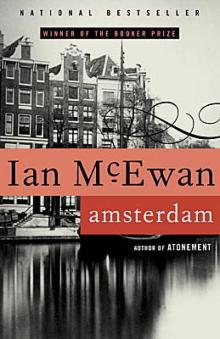 Amsterdam
Amsterdam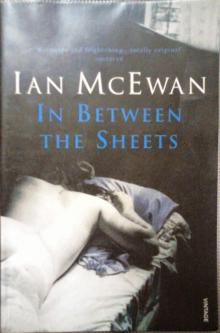 In Between the Sheets
In Between the Sheets Atonement
Atonement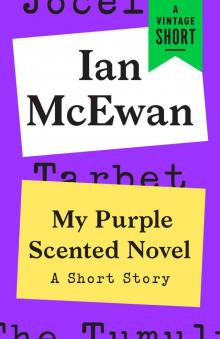 My Purple Scented Novel
My Purple Scented Novel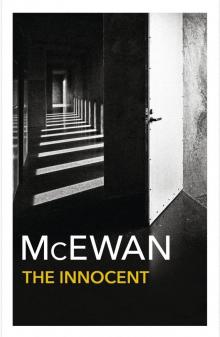 The Innocent
The Innocent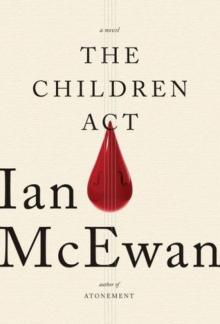 The Children Act
The Children Act Enduring Love
Enduring Love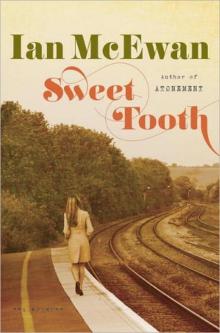 Sweet Tooth
Sweet Tooth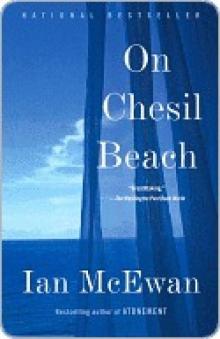 On Chesil Beach
On Chesil Beach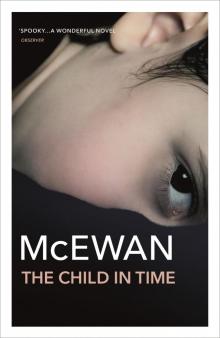 The Child in Time
The Child in Time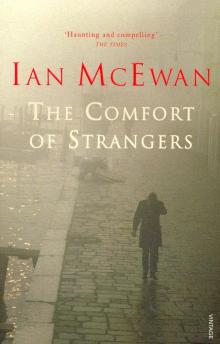 The Comfort of Strangers
The Comfort of Strangers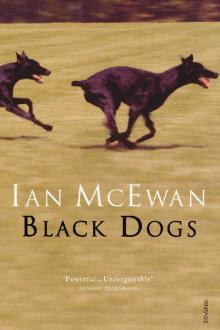 Black Dogs
Black Dogs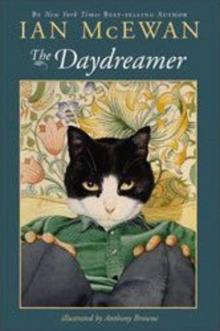 The Daydreamer
The Daydreamer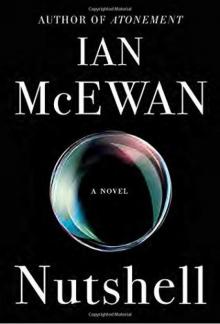 Nutshell
Nutshell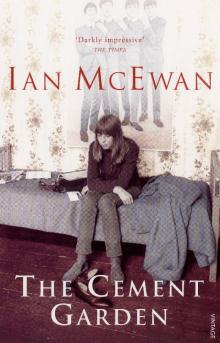 The Cement Garden
The Cement Garden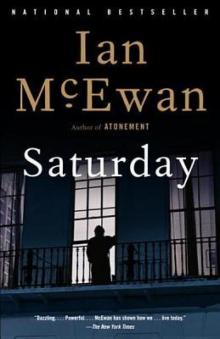 Saturday
Saturday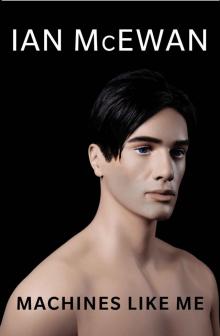 Machines Like Me
Machines Like Me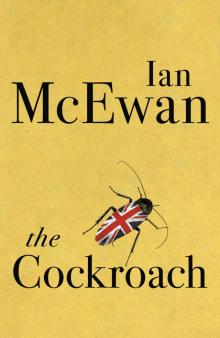 The Cockroach
The Cockroach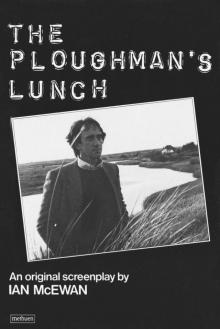 The Ploughman’s Lunch
The Ploughman’s Lunch